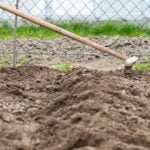Organic vegetable gardening for dummies is a great way to start your journey into sustainable and environmentally-friendly gardening. In this guide, we will explore the basics of organic gardening and why it is important, as well as provide practical tips and techniques for beginners to get started.
Organic gardening is a method of growing plants without the use of synthetic chemicals or genetically modified organisms. It focuses on working with nature, promoting biodiversity, and maintaining soil health. This not only produces healthier and more nutritious vegetables but also helps reduce the negative impact on the environment.
In this section, we will delve into the fundamental principles of organic vegetable gardening and its importance in promoting sustainability and environmental stewardship. Whether you are a beginner or someone looking to transition from conventional gardening methods, this guide will help you understand the benefits of organic gardening and how you can apply it in your own backyard.
Getting Started
When it comes to organic vegetable gardening for dummies, the first step is choosing the right location for your garden. The success of your vegetable garden depends greatly on the location you choose, as it can impact the growth and health of your plants. Ideally, you want a location that receives plenty of sunlight, has good drainage, and is easily accessible for maintenance.
Before selecting a spot for your organic vegetable garden, take some time to observe your yard or outdoor space. Look for areas that receive at least six hours of sunlight each day, as most vegetables thrive in full sun.
Additionally, consider the quality of the soil in these areas. You may want to invest in a soil testing kit to determine the pH and nutrient levels of the soil, which can help you make informed decisions about where to plant your vegetables.
It’s also important to consider proximity to water sources when choosing a location for your organic vegetable garden. You’ll want easy access to water for irrigation, especially during dry spells. Lastly, think about convenience – select a spot that is easily accessible for weeding, harvesting, and general maintenance. By taking these factors into consideration, you can ensure that you’re setting yourself up for success with your organic vegetable garden.
Essential Tools and Supplies for Organic Vegetable Gardening
Organic vegetable gardening for dummies requires some essential tools and supplies to help you get started and maintain a successful garden. One of the most important tools you’ll need is a set of high-quality hand tools, including a trowel, hand fork, and pruners. These will be essential for planting, weeding, and harvesting your organic vegetables. Additionally, a sturdy garden hoe and rake will also be necessary for preparing the soil and maintaining your garden.
In addition to hand tools, having a good quality watering can or hose is crucial for keeping your organic vegetable garden properly hydrated. Organic gardening also often involves using natural fertilizers and pest control methods.
Consider investing in some compost bins or a compost tumbler to create your own nutrient-rich compost for your garden. You may also want to have row covers or netting on-hand to protect your plants from pests while still allowing air, light, and moisture to come through.
Furthermore, it’s important to have protective gear such as gloves, knee pads, and a wide-brimmed hat to shield yourself from the sun while working in your garden. Lastly, invest in some durable plant markers or labels so that you can keep track of what you’ve planted where in your organic vegetable garden.
| Tools | Supplies |
|---|---|
| Hand trowel | Gloves |
| Hand fork | Compost bins |
| Pruners | Knee pads |
Selecting the Best Organic Vegetables for Beginners
When starting an organic vegetable garden, it is crucial to choose the right vegetables for beginners. It’s important to select vegetables that are easy to grow, low maintenance, and versatile in their uses. Here are some of the best organic vegetables for beginners to consider planting in their garden.
Tomatoes
Tomatoes are a great choice for beginners because they are versatile and relatively easy to grow. They can be grown in containers or directly in the ground, making them suitable for all types of gardens. Tomatoes also come in a variety of colors, shapes, and sizes, so you can experiment with different types.
Carrots
Carrots are another excellent option for beginner organic vegetable gardening. They thrive in loose, well-drained soil and require minimal maintenance once planted. Carrots also have a long growing season, allowing you to enjoy fresh carrots throughout the year.
Spinach
Spinach is a nutritious leafy green that is ideal for beginner gardeners. It thrives in cooler temperatures and can be harvested multiple times throughout the growing season. Spinach also does well in containers, making it suitable for small gardens or balcony gardening.
By choosing these beginner-friendly organic vegetables, you can set yourself up for a successful gardening experience while enjoying a bountiful harvest of fresh produce. Happy planting.
Soil Preparation and Composting for Organic Vegetable Gardening
When it comes to organic vegetable gardening for dummies, one of the most important steps is soil preparation. Before you start planting your vegetables, it’s essential to ensure that your soil is healthy and nutrient-rich. One way to achieve this is through composting. Compost is a natural fertilizer that can significantly improve the quality of your soil, providing essential nutrients for your vegetables to thrive.
Here are some key steps to prepare your soil and incorporate compost into your organic vegetable garden:
1. Test your soil: Before adding any amendments, it’s crucial to test the pH and nutrient levels of your soil. You can do this by purchasing a simple DIY soil testing kit or by sending a sample to a professional lab. This will give you valuable information about the current state of your soil and what it needs.
2. Amend your soil: Based on the results of your soil test, you may need to add certain amendments such as lime to raise the pH or sulfur to lower it. Additionally, incorporating organic matter like compost or aged manure into the soil can improve its structure and fertility.
3. Create a compost pile: Composting is an excellent way to reduce waste while creating a valuable resource for your garden. You can start by collecting kitchen scraps, yard waste, and other organic materials in a designated area of your backyard. Over time, these materials will decompose into nutrient-rich compost that you can mix into your garden beds.
By following these steps for proper soil preparation and composting, you can create an optimal environment for growing healthy and bountiful organic vegetables in your garden. It’s an essential aspect of organic vegetable gardening for dummies that shouldn’t be overlooked.
Planting and Maintenance
Choosing the Right Plants
When it comes to planting your organic vegetable garden, it’s important to choose the right plants for your specific location and climate. Consider the amount of sunlight, soil type, and water availability in your garden area. Some great options for beginners include tomatoes, cucumbers, peppers, lettuce, and carrots. These vegetables are relatively easy to grow and maintain, making them perfect for those just starting out with organic gardening.
Proper Planting Techniques
Once you have selected the vegetables you want to grow, it’s time to plant them in your garden. Make sure to space out your plants according to their specific needs and follow the instructions on the seed packets or starter plants. Proper spacing will ensure that each plant has enough room to grow and thrive. Additionally, be sure to provide support for vining plants like tomatoes and cucumbers by using stakes or trellises.
Maintaining Your Organic Vegetable Garden
Watering and Feeding
One of the most important aspects of maintaining an organic vegetable garden is proper watering and feeding. It’s essential to water your plants regularly, especially during hot summer months. However, be careful not to overwater as this can lead to root rot. Additionally, consider using natural fertilizers such as compost or organic fertilizer to provide essential nutrients for healthy plant growth.
Weeding and Mulching
Weeds can quickly overtake a garden and compete with your vegetables for essential nutrients. Regular weeding is crucial in keeping your garden healthy. Consider using mulch around your plants to help suppress weed growth and retain moisture in the soil. Organic mulches such as straw or wood chips are great options for adding nutrients back into the soil as they break down over time.
By following these planting and maintenance tips, even those new to organic vegetable gardening can enjoy a successful harvest of fresh produce from their own backyard.
Dealing With Common Pests and Diseases in Organic Vegetable Gardening
When it comes to organic vegetable gardening for dummies, one of the biggest challenges is dealing with pests and diseases without using synthetic chemicals. Here are some common pests and diseases that you may encounter in your organic garden, along with natural methods for controlling them:
1. Aphids: These small, soft-bodied insects can quickly infest your vegetable plants, sucking the sap and causing stunted growth. To control aphids in your organic garden, try spraying the affected plants with a strong stream of water to dislodge the pests. You can also use insecticidal soap or neem oil as a natural alternative.
2. Powdery Mildew: This fungal disease appears as a white powdery substance on the leaves of plants, such as squash and cucumbers. To prevent powdery mildew in your organic vegetable garden, make sure to provide good air circulation by spacing out your plants properly. You can also spray affected plants with a mixture of baking soda and water to help combat this common disease.
3. Tomato Hornworms: These large green caterpillars can wreak havoc on your tomato plants if left unchecked. Handpicking the hornworms off your plants is an effective method of control in an organic garden. Another natural solution is to introduce predatory insects, such as ladybugs or green lacewings, which feed on the hornworms.
By being proactive and using these natural methods for controlling pests and diseases in your organic vegetable garden, you can successfully maintain a healthy and thriving crop without relying on synthetic chemicals. Remember that prevention is key, so regularly inspecting your plants for any signs of trouble is essential in organic gardening for dummies.
Harvesting and Enjoying the Fruits of Your Labor
Once you have successfully planted and tended to your organic vegetable garden, it’s time to reap the rewards of your hard work. Harvesting your own homegrown produce is one of the most satisfying experiences of organic vegetable gardening for dummies. Not only is it a great way to enjoy fresh, flavorful vegetables, but it also allows you to appreciate the fruits of your labor.
When it comes to harvesting your organic vegetables, timing is key. Different vegetables have different indicators that they are ready to be harvested, such as color, size, and texture.
For example, tomatoes should be picked when they are fully red and firm, while lettuce can be harvested when the leaves are large and crisp. It’s important to do some research on each type of vegetable you are growing to ensure that you harvest them at the perfect time for optimal flavor and nutrition.
In addition to knowing when to harvest your vegetables, it’s also important to handle them properly once they’re picked. Be gentle with delicate produce like berries and leafy greens to avoid bruising or damage. For root vegetables like carrots and potatoes, carefully dig around the base of the plant to avoid cutting or bruising the edible portion. Proper handling will ensure that your homegrown vegetables retain their freshness and flavor until they reach your plate.
Conclusion
In conclusion, organic vegetable gardening for dummies can be a rewarding journey for those looking to connect with nature, eat healthy, and reduce their environmental impact. By embracing organic gardening, beginners can enjoy the benefits of fresh and nutritious produce right from their own backyard. The satisfaction of growing your own food using natural, eco-friendly methods is unmatched, and the sense of accomplishment from nurturing a garden from start to finish is truly fulfilling.
Choosing to practice organic vegetable gardening also contributes to a healthier planet by reducing the use of harmful chemicals and preserving the natural balance of ecosystems. Embracing this approach not only benefits individuals and families through improved health and wellness but also has far-reaching positive impacts on the environment and local communities.
By following the tips and guidelines provided in this article, newcomers to organic vegetable gardening for dummies can confidently embark on their own sustainable gardening journey. With careful planning, patience, and dedication, anyone can successfully cultivate a thriving organic vegetable garden that provides an abundance of wholesome produce for years to come.
Whether it’s starting small with a few favorite vegetables or diving into a larger-scale operation, the benefits of organic gardening are sure to bring joy, fulfillment, and delicious harvests.
Frequently Asked Questions
How Do You Start an Organic Garden for Beginners?
Starting an organic garden for beginners involves choosing the right location with access to sunlight, preparing the soil by adding compost and organic matter, selecting easy-to-grow vegetables, and avoiding chemical pesticides and fertilizers.
What Is the Easiest Vegetable Garden for Beginners?
The easiest vegetable garden for beginners includes growing vegetables like lettuce, tomatoes, cucumbers, and green beans. These vegetables are low-maintenance, require minimal space, and are ideal for those new to gardening.
What Are the Rules for Organic Gardening?
The rules for organic gardening revolve around using natural and sustainable practices to grow plants. This includes avoiding synthetic pesticides and fertilizers, promoting biodiversity in the garden, conserving water, and enriching the soil with organic matter. Overall, organic gardening is about working in harmony with nature instead of against it.

If you’re looking to get into vegetable gardening, or are just looking for some tips on how to make your current garden better, then you’ve come to the right place! My name is Ethel and I have been gardening for years. In this blog, I’m going to share with you some of my best tips on how to create a successful vegetable garden.





